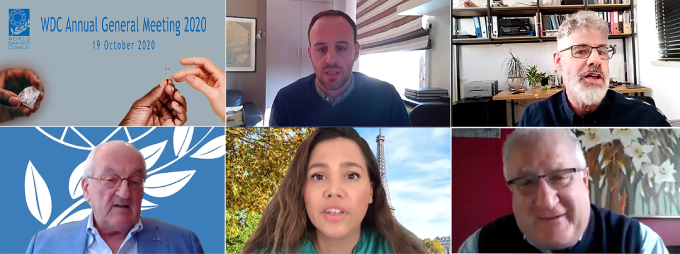
According to the WDC, the dominant theme of the gathering was the industry’s obligation to maintain and grow consumer confidence in the sector that is being fundamentally impacted by the global pandemic.
Asked by the panel discussion moderator about the path forward for the Kimberley Process, WDC president Edward Asscher spoke about the introduction of seven principles in support of responsible sourcing at the KP. These, he said, include complying with international conventions related to human rights, labor rights, environmental practices, anti-corruption and anti-money laundering, as well as supporting the development of communities in the mining and production areas, and disclosing and differentiating natural and synthetic diamonds.
“Those seven principles, if we are able to reach consensus at the KP, will have a remarkable impact on the influence and recognition of these topics as part of the whole KP system,” he said.
In his keynote address David Prager, executive vice president corporate affairs at the De Beers Group stated that the Kimberley Process Certification Scheme (KPCS) has played a critical role in defending the integrity of the diamond supply chain, but it would be incorrect to regard it as a complete solution.
He noted that a regulatory mechanism like the KPCS must be supported in its protection of the diamond value chain by other systems, like the OECD Due Diligence Guidance for Responsible Supply Chains of Minerals from Conflict-Affected and High-Risk Areas, as well as the new WDC System of Warranties and the Responsible Jewellery Council (RJC) Code of Practices.
Alex Shishlo for Rough&Polished
